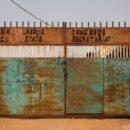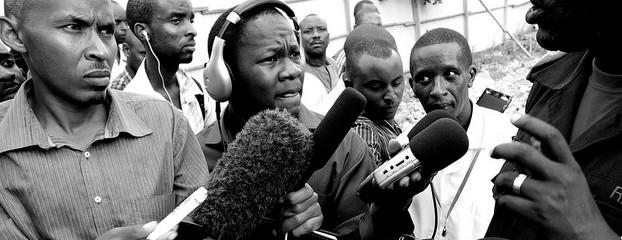Paul Collier: Can Africa harness its resources for development?

Paul Collier speaks with an authoritative and original voice on the economics of African development. He is the author of The Bottom Billion: Why the Poorest Countries are Failing and What Can be Done About It and Director of Centre for the Study of African Economies at Oxford University. He spoke at a Royal African Society Business Breakfast on the subject of whether Africa can harness its resources for development.
The value of Africa’s natural resources – valued in the trillions of dollars – dwarf other sources of capital such as remittances and aid. High commodity prices (despite some variation) ensure that they will remain a valuable asset to African countries. However, these natural resources are substantially unknown (relative to OECD countries.)
The history of resource extraction is however substantially a history of plunder. Plunder has been directed by powerful forces both internal to African economies, and externally from foreign companies, which have largely been the beneficiaries of these resources. The task is to counter this model of plunder.
Collier used the example of Germany – the best run economy in Europe – to demonstrate that the most effective motivation for economic renaissance is to have experienced a period of absolute economic failure. For Germany, this was the crisis of the early 1930s, and for Africa this is the present day.
Collier sought to answer the question: What will it take for Africa to do a Germany? – this was covered in the following four areas.
The discovery process – Africa needs geological information to be made public before it goes to auction with private companies seeking to invest in resource extraction. This will enable it to better the financial returns it gets from what are at present poorly negotiated deals.
Capturing value – Africa needs to institute a more effective tax system. Put simply, African countries must “˜tax what they can observe’ and tax systems must be built with the notion that this is a volatile world. Contracts should be designed that allow for contingent events and contract stability, and must be founded on a well designed tax system.
Avoid becoming like the Niger Delta – One must “˜deal sensibly with the locals.’ The example of the Delta is used because, due to environmental degradation and government theft, the communities in this region see the resource as being rightfully theirs (as opposed to belonging to Nigeria as a whole.) The region has subsequently become privileged at the expense of the nation.
Utilising Revenues – this must include both present day consumption and The Future. Historically, African countries have spent too much on immediate consumption. At least 30 percent of the assets should therefore be saved to offset the predictable depletion of the resource.
Volatility should also be considered. Commodity prices are predictably volatile, so savings must be made to plan ahead for this.
Which model for Africa?
Norway is the archetypal resource-rich economy. However, Collier argues that the use of its resources – through the development of its own national sovereign wealth fund – is the wrong model for Africa. This only works for countries where there is a high level of capital per member of the labour force.
What African countries must do is to “˜invest in investing’. They must improve the process of both public and private investments, and bring down the costs of goods and construction.
“˜Investing in investing’ however takes time. Prior to this, African countries should use their revenues to invest abroad. When capacity is built, only then do you invest at home.
Back to the German Question
The resultant question must be – How you develop the decision chain in order to facilitate these changes?
There are 3 basic areas on which a country must concentrate:
- Build rules
- Build institutions capable of implementing these rules
- Build a critical mass of citizens who understand and can defend these institutions
The basis for a system of rules must be accountability and responsibility. Whilst the Norwegian model of responsibility (the sovereign wealth fund) is not the right one for Africa, a more nuanced variation should be applied. This comes in the form of a sovereign wealth and resilience fund. Such funds, (being the capital products of domestic resource extraction,) must be able to invest both at home and abroad. Such funds should also be the recipient locations for donor money, which can then be applied to import structures of good economic governance. Once this has become a condition of donor funding, the structures created within the fund will apply to all investments that are directed towards such funds.
Both sovereign development and resilience funds should be managed through Central banks – which are in general the most competent economic institutions in developing countries, and are sufficiently far removed from government to ensure a necessary level of independence from politics.
Collier closed by arguing that this “˜critical mass’ of ordinary citizens – those capable of defending their institutions is possible, and we may currently be moving towards it existing. Whilst African governments used to be scared of the IMF, what they now fear is “˜the street’ – the people who, like those who overturned the regimes in North Africa, are demanding “˜Jobs and justice.’ It is these people on whom Africa’s development now depends.
By Magnus Taylor, Managing Editor, African Arguments








“African countries should use their revenues to invest abroad”
abroad where? I hope he don’t mean the dodgy banks! Gadafi of Libya has done that in the last decade or so. Everyone knows he invested billions in these banks. What did he get in return? Libya won’t see most of money too.
Economic pipe dreams.
Africa needs good governance, control of its trading conditions to allow it to invest in health and education and access to sell its agriculture to lift the majority from poverty. It needs a leg-up.
chlorodine https://chloroquineorigin.com/# hydroxichloriquin
cialis price cialis coupon